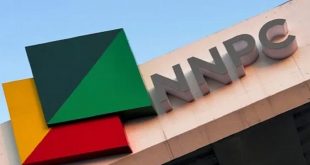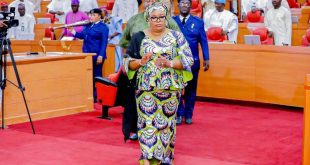
President Bola Tinubu
The thing about economic policies is that they have good and bad sides. The trick for policymakers, and indeed the people, is to focus on maximising the good and minimising the bad. But the larger responsibility rests on policymakers, truth be told. President Bola Tinubu took the tough step of abolishing fuel subsidies in line with a decision earlier taken by the Buhari government. Fuel subsidies are a tough thing to eradicate anyway. President Jonathan tried it in January 2012. It did not work. President Buhari also tried it in 2016, but he had to give up. But the people of Nigeria got tired of hearing long stories about how all the gains from crude oil had been diverted into buying refined petroleum. So, the President seized on that sentiment to finally bid bye to fuel subsidy forever.
In time, Nigeria’s Central Bank, reeling from several internal upheavals, also unified the foreign exchange rates. Liberal economists, as well as the multilateral agencies, would remind us from time to time about our three subsidies – petrol, foreign exchange and electricity. And so, an attempt was made to close the gap between the official and black-market rates for the US dollar. What was clearly achieved, though, was an elimination of the several rates that emanated from even the official sources. The market was allowed to ride, while the CBN observed, and so on 30 January, with unofficial/black-market rates at around N1455=$1, the CBN allowed rates to float freely, when it instructed that all in-rates for official purchases should be reflected. Official rates sometimes surpassed the unofficial ones, but both now hover around between N1450 and N1500 to $1.
Below, I will try and enumerate how the very profound – and some call it risky – reforms of President Tinubu’s administration will still yield results. I will be considering the pros and cons and looking at where the upsides may come from. I will then admonish that we focus on the positives for the best results.
Downside – Inflation
The policies have driven inflation to 28.92 per cent as at January, with predictions that it may climb some more before receding. The foreign exchange play – more than the oil subsidy removal – is the real culprit as far as I am concerned. Forex rates have always given Nigerians the excuse to jerk up the prices of whatever they are selling. And the triple depreciation of the naira in as many months has had jarring effects on everybody. Inflation is the big elephant in the room. It is known as man’s worst enemy, as it gnaws away at your money wherever it may be. The good thing is that Nigerians as a whole are now getting more understanding and more capacity around the management of inflation. I think the new knowledge about what to do when inflation rears its head is very import for the present and the future.
The Central Bank of Nigeria is also evolving new rules around how the foreign exchange market will operate, going forward. In the last outing of the CBN Governor, I could see the CBN already thinking about capacitating the Bureaux de Change, reducing their number and enabling them to add other businesses after recapitalising. This is another good move that assures us that indeed, as the CBN Governor mentioned, the naira may be undervalued already – meaning that it will strengthen.
Naira Surfeit
Now that naira exchanges so low compared to the US dollar, the naira value of all our foreign exchange receipts – from crude oil and other exports – have suddenly ballooned. This creates more demand for naira and could expand the money supply in significant ways. This will also put pressure on inflation, but new inflation could be mitigated if we quickly put to use new knowledge around inflation management, such as engagements with distributors, middlemen and retailers around the agriculture sector, or more hands-on and data-driven approaches around the subject.
One thing that may be considered as a plus from these policy reforms is that it has become a lot more difficult for Nigerians to emigrate – the japa syndrome. Whereas aspirational Nigerians struggle every day to go to Europe, UK, Canada or USA, now air tickets are a lot more expensive, and those countries have also been making their entry conditions tougher. Many young Nigerians are finding it necessary to stay back at home to see what they could make of Nigeria.
As much as having more naira at hand naturally increases inflation, it also presents immediate opportunities. All levels of government now have increased naira cashflows, which must be immediately directed to productive use. My suggestions are that the states should look at clearing old contractor debts, wages, pensions and gratuities. They enjoy a major arbitrage now, because even though the value of the naira has fallen, these debts are not ‘marked-to-market’ and will still be paid at face value. States and the Federal Government could even use this opportunity to pay down a considerable portion domestic debts, so that their balance sheets improve. The improvement of state and national balance sheets would enable us to be more attractive for investments. Chances are that our ratings as a nation will improve. Some analysts have also suggested that we use the extra naira to reduce our budget deficit. That is also an option. Already, the 2024 budget is intended to halve the deficit. Perhaps we could achieve an 80 per cent drop in deficit from the 2023 figures. We must seize on the advantages of the naira surfeit and not only concentrate on the disadvantages.
Industrialisation and Economic Growth
Yet, the downside of a weaker currency is that it tapers economic growth – especially when combined with higher interest rates. For one, weaker exchange rates makes it tougher for countries to import equipment and machinery, which could spur industrialisation. Existing industries could also find it more difficult to import spares and replacements.
Exports
But on the flip side, weaker currencies encourage exports. Already, many of our industries have reported higher exports to neighbouring countries. However, the issue here is that many of the new export proceeds do not come back into Nigeria. The loss of confidence means that most Nigerians will do whatever it takes to hold on to their dollars. The export space is fraught with all sorts of tricks to make this happen. Also, a lot of informal export trade happens across our borders. This has caused spikes in inflation levels, as staple foods get exported for the West and East African CFA, through Cameroon, Benin and Niger Republic. Our maize is one example. Many of our millers (soybean, sesame seeds, etc) are also complaining because the cash crops they need to keep their factories running are simply getting exported. Many local players are also buying up grains as a hedge against the naira. They understand that they could always offload the grains for dollars at any point.
Reverse Japa and Slower Japa
One thing that may be considered as a plus from these policy reforms is that it has become a lot more difficult for Nigerians to emigrate – the japa syndrome. Whereas aspirational Nigerians struggle every day to go to Europe, UK, Canada or USA, now air tickets are a lot more expensive, and those countries have also been making their entry conditions tougher. Many young Nigerians are finding it necessary to stay back at home to see what they could make of Nigeria. Many who have traveled have also found that they were lied to; that life is not easy abroad at all. Most Nigerians are not prepared for what they find abroad. But there is also another development that is interesting. A great many Nigerians are now coming back to get their medicals done here. Luckily, not all our medical doctors left to earn more dollars. This is reverse ‘japa’ and is gladdening to the heart. Medicals are much cheaper here and many of our doctors are competent. Also, in the UK, for example, they have a list of seven million people waiting to see doctors or have a surgery. The Canadian system is as bad, while the US system is highly prohibitive, cost-wise.
Niger State and Farm Gates – More Scrutiny
We are now hearing that word again – hoarding. I remember vividly in 1981 through 1984, it was a common word. The Shagari government battled hoarding and when he was overthrown by the Buhari junta, it was criminalised. I recall warehouses getting busted in Akure, Ondo State, where ‘essential commodities’ were released by the military boys, who got famous for that in their early days. Also, Mr Femi Falana has gone to court and obtained a judgment on price control, because there is a subsisting Act to that effect. Some of the items that our laws expect the government to control their prices include tobacco and cigarettes, bicycles and bicycle parts, motorcycle parts, petrol and so on. Some of them sound ridiculous, but these are the times we live in. Now is the time to be open-minded, so that we can jointly solve our economic problems.
Again, there are no policies with only bad sides. The point is how people – starting from government, down to businesses, households and ordinary people on the streets – cotton on to the advantages and make the most of them. We must first get rid of cynicism. Some Nigerians don’t mind the country failing because they didn’t vote for the party in office. Some are working assiduously to ensure this happens. Well, that is politics. So, our analysis must also encompass this reality.
Inside this Price Control Act 2004, we see commodity boards being mentioned. We should recall that the Buhari government had signed into law a certain policy around bulk purchases at farm gates (a policy which I found is in line with what happens in South Africa, UK, USA, Brazil and Argentina, to name a few). Whereas ‘price control’ sounds like an anathema in these modern times, still that is what big countries have put in place for eons, even if they don’t talk about it. For me, if we don’t control prices, that doesn’t mean we should not bother about what happens in that space, and regulate carefully, all through the value chain, so that no Smart Alecs rip Nigerians off just because they can. I see now that the Federal Competition and Consumer Protection Commission (FCCPC) has started speaking up about sellers ripping off consumers. The new understanding of what we had left undone over the decades, as we copied and pasted economic theories, is finally sinking in. As for commodity boards, I understand there is serious opposition to the concept. But Ghana borrowed about $400 million from its cocoa commodity board (COCOBOD). We dismantled ours in 1986. This means this idea mooted by President Tinubu could still work – at least to get our farmers to get more from these price spikes, not only middlemen (many of whom are foreigners).
Dangote Refinery and PH
We must also look forward, with hope, to the commencement of operations at the Dangote and Port Harcourt Refineries. Whereas many people have argued that there will be no reduction of fuel price as a result of Dangote Refinery coming on board, but if it was only the cost of shipping, lightering, handling and so on from Singapore or Rotterdam that we save for the people, that is something. A reduction of N30 to N50 is something. But what is more important is that jobs will be created in the thousands, perhaps up to one million, ancillary activities, and the easy availability of the products would certainly be a plus for the economy. Whether Nigeria sells to Dangote in US dollars or not is immaterial. If that is the case, then we still get dollars into our position as a nation without selling to external parties. If we don’t sell in dollars, then that loss of extra dollars is compensated for by the fact that distributors are not scrambling for dollars to make payment to Dangote as well. I prefer that we try and sidestep all the dollar business and create demand for the naira – of which we already have a surfeit as discussed above. No matter what happens, it is great that we are saving over N10 trillion from the two reforms – bridging the naira-dollar gap and removing subsidies. The question is, how do we deploy this extra?
Improved Revenue
Again, there are no policies with only bad sides. The point is how people – starting from government, down to businesses, households and ordinary people on the streets – cotton on to the advantages and make the most of them. We must first get rid of cynicism. Some Nigerians don’t mind the country failing because they didn’t vote for the party in office. Some are working assiduously to ensure this happens. Well, that is politics. So, our analysis must also encompass this reality. Uneasy lies the head that wears the crown.
These two key reforms that the government has embarked upon are actually designed to remake an economy. Their success will also bring with it a total overhaul of public service, higher earning for all and sundry – including our artisans who are hardly organised these days, a new understanding in resource management, better compliance around government revenue, less corruption, and so on. However, there is a need to continually feel the pulse of the people (especially with the foreign exchange issue), so that we don’t exceed the optimal doses. The man on the streets may not understand a lot of the complexities discussed here. So, much care is needed. And no administration may solve all the problems of Nigeria at once. Only patriots – like Tinubu – will try. It must be recalled that the other two prominent candidates in the last elections promised to do exactly what Tinubu has done. But now, they can point fingers and criticise because someone has belled the cat.
In the end, I believe these policies will deliver massively. My only prayer is that we begin to see results early. But my duty is also to strive and point out where I think the benefits are and urge us all to be positive while getting government to move with alacrity and urgency. By the time we improve state and federal balance sheets, boost trade and industry, get our infrastructure running at par with other growing states, change mentality around government revenue and expenditure, reverse the japa syndrome or at least slow it down, while attracting good people from even our subregion, boost export of value-added products, Tinubu would have indeed created a new Nigeria. Renewed Hope is very much on course. Like Jesse Jackson used to say back then; Nigerians must KEEP HOPE ALIVE!
PMNEWS
 DailyrecordNg …Nigeria's hottest news blog
DailyrecordNg …Nigeria's hottest news blog






